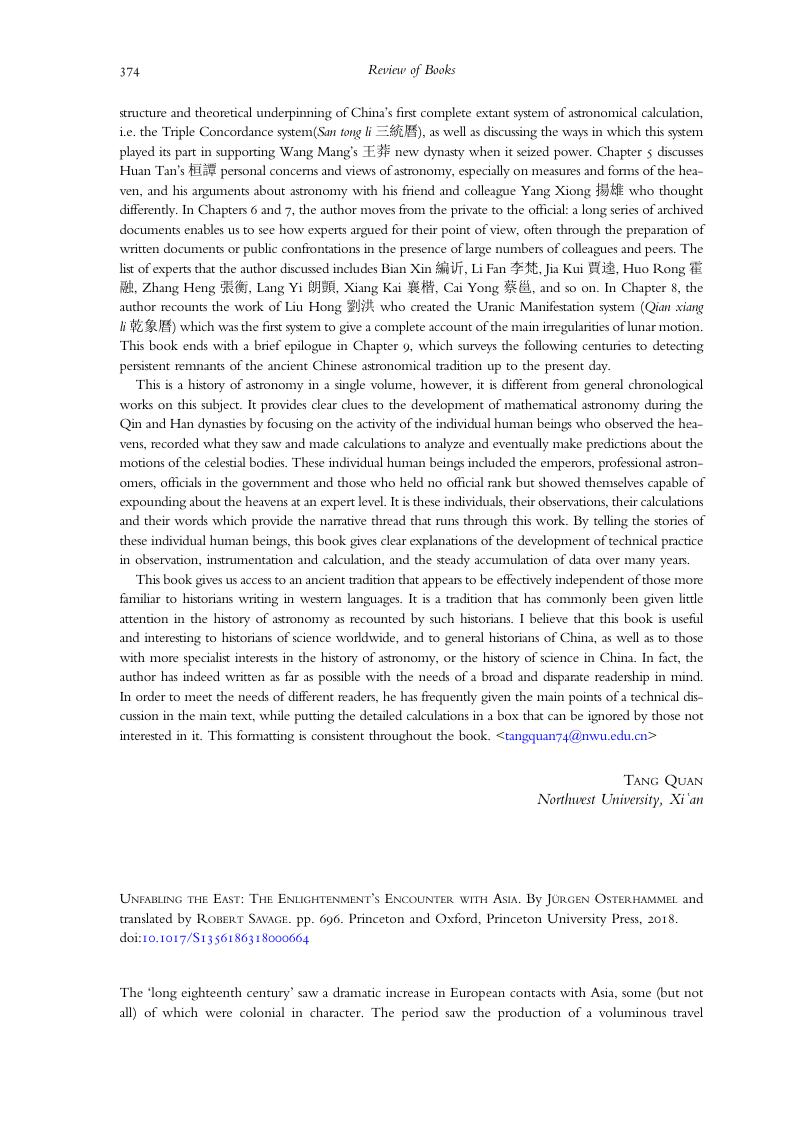No CrossRef data available.
Article contents
Unfabling the East: The Enlightenment's Encounter with Asia. By Jürgen Osterhammel and translated by Robert Savage. pp. 696. Princeton and Oxford, Princeton University Press, 2018.
Published online by Cambridge University Press: 26 December 2018
Abstract

- Type
- Book Review
- Information
- Copyright
- Copyright © The Royal Asiatic Society 2018
References
1 For more information about Manning's career, see: Ed Weech and Nancy Charley, “After the fashion of their country: Thomas Manning and the early British study of China”, Times Literary Supplement (29 April 2016); Wong, Lawrence Wang-Chi, “‘We are as babies under nurses’: Thomas Manning (1772–1840) and Sino-British Relations in the Early Nineteenth Century”, Journal of Translation Studies 1(1) (2017, New Series), pp. 85–136Google Scholar.
2 Manning's travel journals from his trip to Tibet can be found in the Society's archives, as can many of his other papers, all of which are digitised online at https://royalasiaticcollections.org/thomas-manning-archive/.
3 Scheidel, Walter, “The Roman Slave Supply.” The Cambridge World History of Slavery, edited by Bradley, Keith and Cartledge, Paul, Cambridge University Press (2011), p. 289Google Scholar.
4 For a discussion of this question, see Toledano, Ehud R., As If Silent and Absent: Bonds of Enslavement in the Islamic Middle East, Yale University Press (2007), pp. 14–23Google Scholar.


